Introduction: Setting the Stage for a Healthcare Revolution
The growth of AI in healthcare represents one of the most transformative shifts in modern medicine, blending cutting-edge technology with the timeless human need for healing and care. As artificial intelligence in healthcare market sectors continue to expand, the industry is witnessing profound changes that promise to reshape diagnostic methods, patient management, drug development, and healthcare operations. The evolution of the ai in healthcare market has not only fueled innovation but also spurred critical discussions about ethics, regulatory frameworks, and the future role of healthcare professionals. This article will explore breakthrough insights into these transformations, offering a comprehensive, in-depth examination suitable for a graduate-level audience seeking a profound understanding of the subject. By tracing current trends and unveiling future opportunities, we aim to illuminate the path ahead in this rapidly advancing field.
You may also like: Revolutionizing Healthcare: How AI in Medicine Is Enhancing Diagnosis, Treatment, and Patient Outcomes
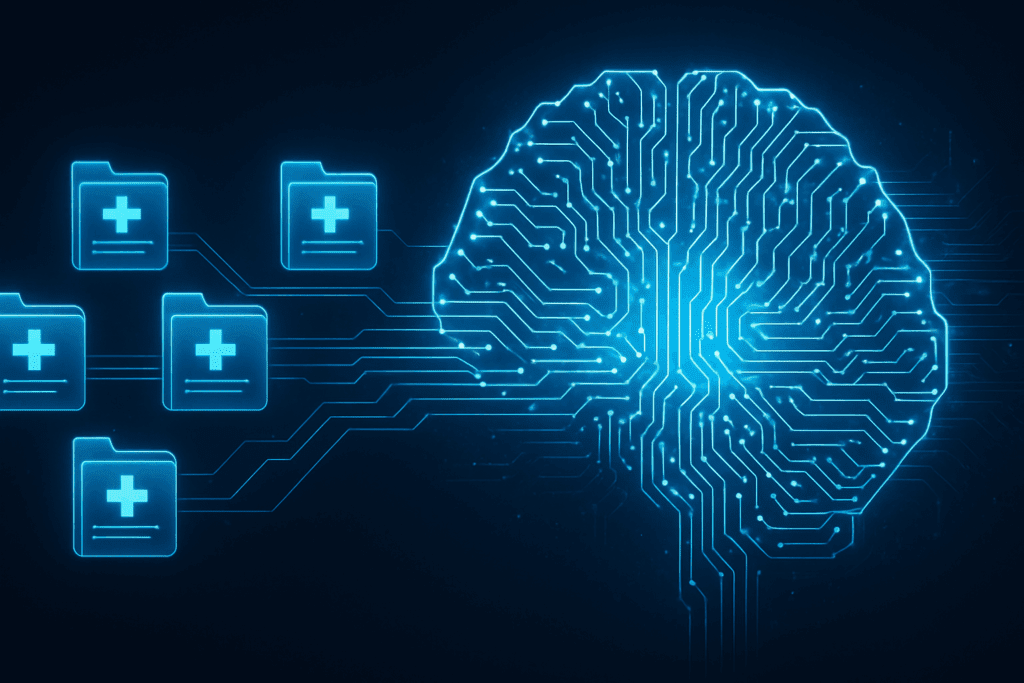
Understanding the Growth of AI in Healthcare: Foundations and Catalysts
To appreciate the rapid ascent of AI in healthcare, one must first grasp the foundational catalysts that have enabled its expansion. The surge in computational power, the proliferation of big data from electronic health records (EHRs), and the increased accessibility of machine learning algorithms have created a fertile environment for technological breakthroughs. Hospitals and research institutions now collect vast quantities of patient data, ranging from imaging scans to genetic information, fueling models that can identify patterns far beyond human cognitive capabilities. The growth of AI in healthcare is also driven by significant investments from both public and private sectors, recognizing the potential to enhance patient outcomes while reducing operational inefficiencies.
Another major driver is the aging global population, which demands more sophisticated and scalable healthcare solutions. Chronic diseases such as diabetes, cardiovascular conditions, and neurodegenerative disorders require continuous monitoring and management, areas where AI excels. Furthermore, the COVID-19 pandemic starkly highlighted vulnerabilities in global health systems, accelerating the adoption of AI tools to manage resource allocation, predict outbreaks, and streamline clinical workflows. These synergistic factors have positioned AI as a critical pillar in the future of healthcare delivery.
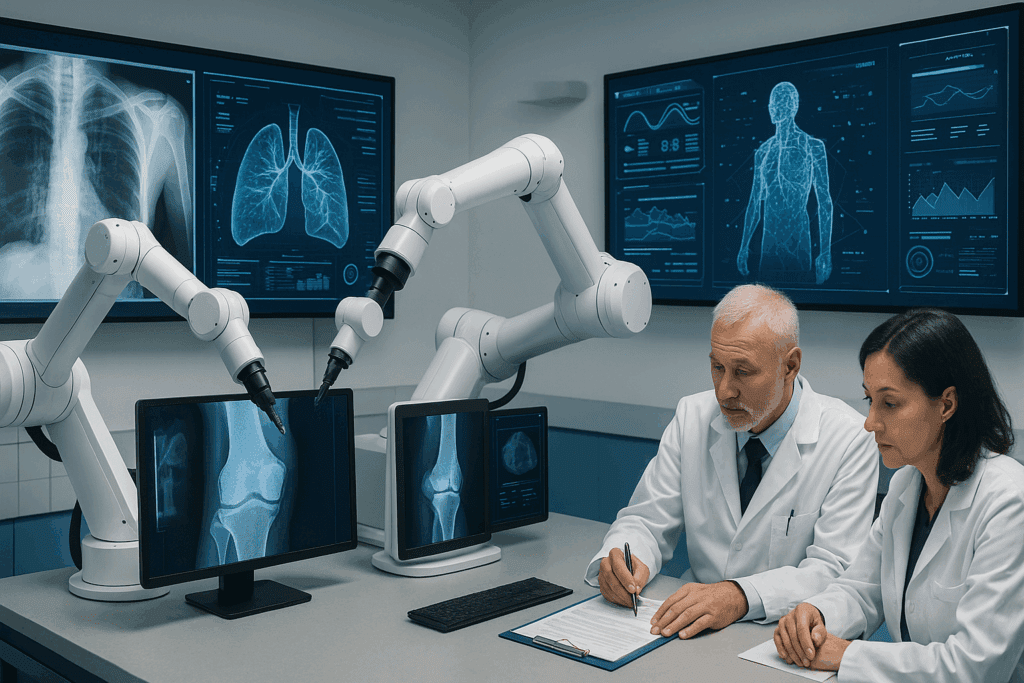
Breakthrough Applications Fueling the Growth of AI in Healthcare
One cannot discuss the growth of AI in healthcare without acknowledging the revolutionary applications already reshaping the field. In diagnostics, AI-driven imaging analysis tools such as those developed by DeepMind and Zebra Medical Vision demonstrate accuracy on par with, and sometimes exceeding, that of human radiologists. By analyzing CT scans, MRIs, and X-rays with unprecedented speed and precision, AI reduces diagnostic errors and enables earlier interventions.
In oncology, personalized treatment plans informed by AI are improving patient prognoses. Machine learning algorithms can now analyze tumor genomics and recommend targeted therapies, a capability that significantly advances the pursuit of precision medicine. In primary care, chatbots and virtual health assistants powered by natural language processing (NLP) are providing preliminary diagnostic advice, triaging patient queries, and enhancing access to healthcare for underserved populations.
Meanwhile, AI’s role in drug discovery has dramatically shortened timelines. Traditional drug development processes often span a decade or more; AI models can identify promising molecular structures, predict biological activity, and simulate clinical trial outcomes, saving valuable time and resources. These breakthrough applications illustrate why stakeholders across the healthcare ecosystem are fervently investing in the artificial intelligence in healthcare market.
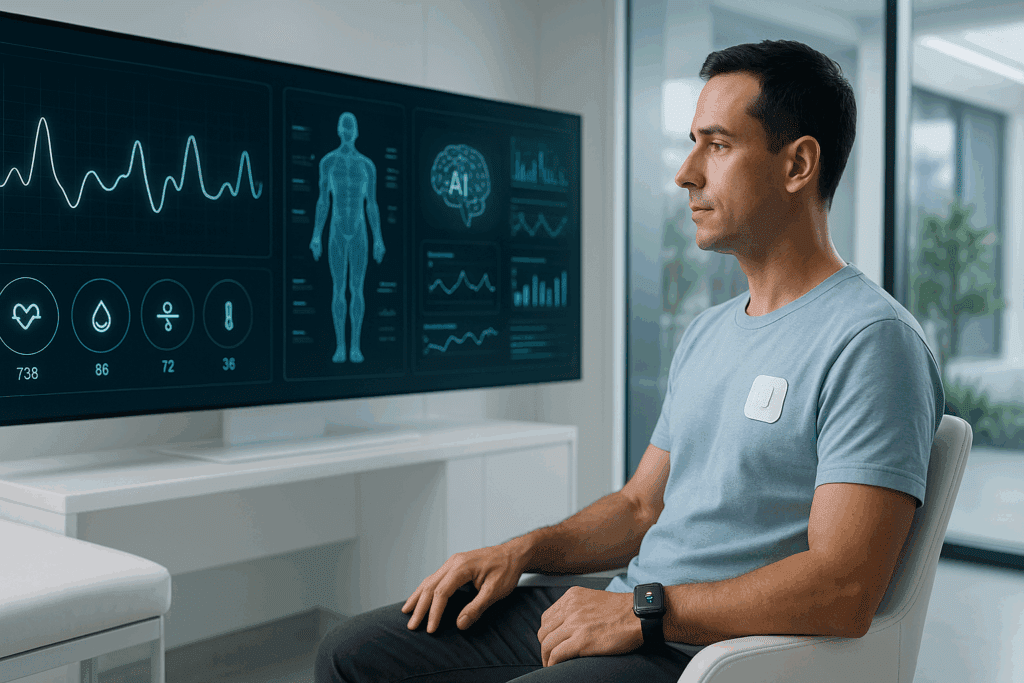
Current Trends Driving the AI in Healthcare Market Forward
The ai in healthcare market is evolving at a rapid pace, propelled by several dynamic trends. One prominent trend is the integration of AI with wearable technology and remote monitoring devices. Smartwatches, biosensors, and implantable devices now continuously collect health data, allowing AI algorithms to detect subtle physiological changes and preempt adverse health events. This real-time health monitoring not only empowers patients but also provides clinicians with invaluable longitudinal data.
Another trend involves AI-enhanced robotic surgery. Robots such as the da Vinci Surgical System are now augmented with AI capabilities, offering greater precision, improved dexterity, and enhanced visualization for complex procedures. By minimizing invasiveness, these technologies contribute to faster patient recovery times and better surgical outcomes.
AI is also driving the rise of predictive analytics in healthcare management. Hospitals and health systems use predictive models to forecast patient admissions, optimize staffing, and allocate resources efficiently. This trend is particularly critical in the context of value-based care models, where operational efficiency directly correlates with financial incentives. As these trends unfold, they reinforce the robust growth of AI in healthcare and expand the horizons of what is possible.
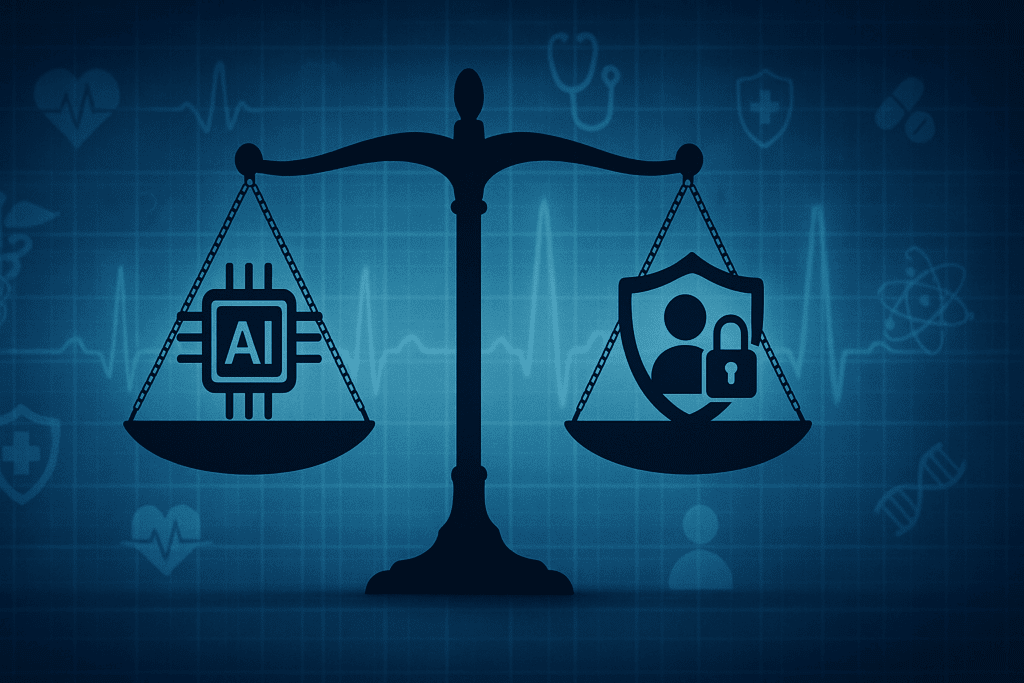
Ethical Challenges in the Growth of AI in Healthcare
Despite its tremendous potential, the growth of AI in healthcare is not without challenges, particularly in the realm of ethics. One pressing issue is algorithmic bias. AI systems trained on non-representative data sets may perpetuate or even exacerbate existing health disparities. For instance, diagnostic tools predominantly trained on data from specific ethnic groups may underperform when used with more diverse populations, leading to inequitable care.
Data privacy and security concerns also loom large. Healthcare data is among the most sensitive types of personal information, and breaches could have devastating consequences for patients. Ensuring robust cybersecurity measures and strict data governance protocols is essential to maintain trust in AI solutions.
Moreover, the use of AI raises critical questions about transparency and explainability. Many machine learning models, particularly deep learning networks, function as “black boxes,” making it difficult to interpret how they arrive at specific conclusions. In healthcare, where decisions can mean life or death, the demand for interpretable AI is paramount. Addressing these ethical challenges is vital for sustaining the long-term growth and acceptance of AI technologies in healthcare settings.
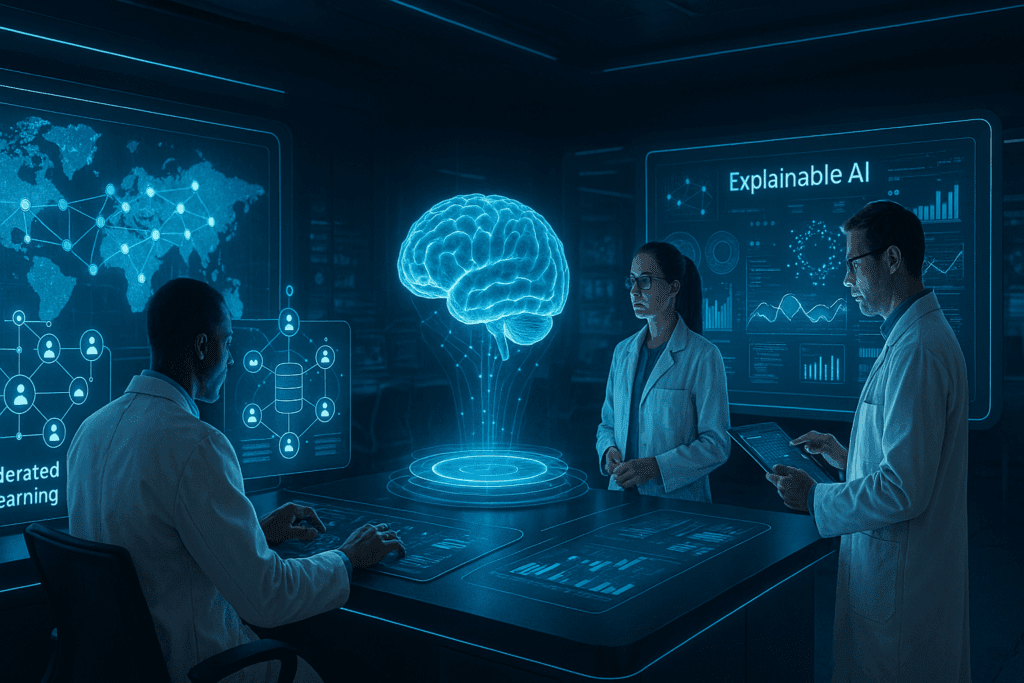
Breakthrough Innovations Shaping the Future Growth of AI in Healthcare
Emerging innovations are poised to further accelerate the growth of AI in healthcare. One groundbreaking development is federated learning, a technique that enables AI models to train across multiple decentralized data sources without compromising patient privacy. This approach holds the potential to leverage diverse data sets while preserving confidentiality, overcoming one of the field’s key ethical barriers.
Advancements in explainable AI (XAI) are another frontier. Researchers are developing models that can provide clear, understandable rationales for their outputs, increasing clinician confidence in AI-assisted diagnoses and recommendations. As trust in AI systems grows, so too will their adoption across clinical practices.
Quantum computing represents a distant yet tantalizing horizon. Quantum computers could exponentially enhance the processing capabilities required for complex AI models, unlocking new possibilities in drug discovery, genomics, and personalized medicine. While practical quantum applications remain nascent, their potential impact on the artificial intelligence in healthcare market cannot be overstated. These breakthrough innovations herald an exciting future where AI will be seamlessly integrated into every facet of healthcare delivery.
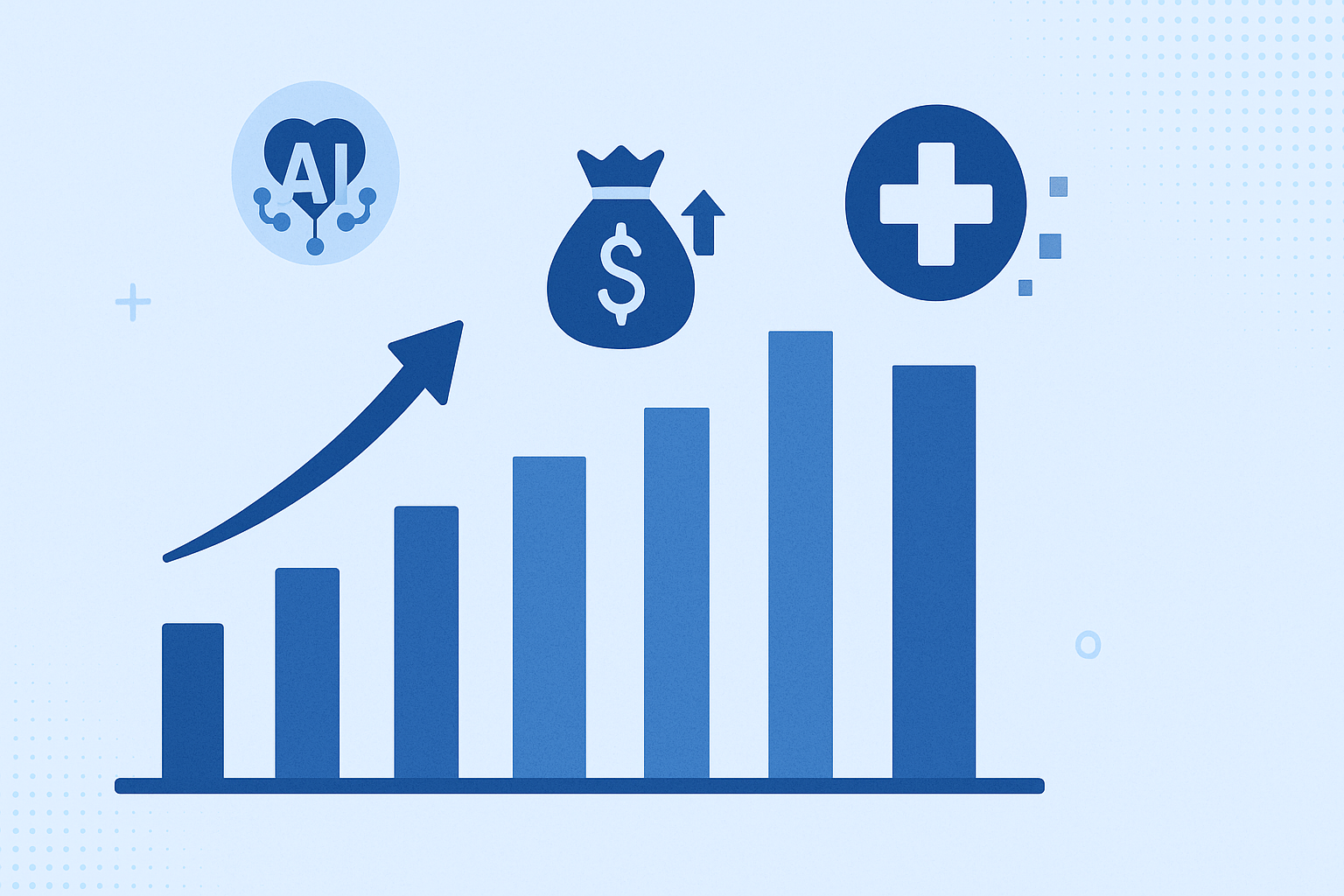
The Expanding AI in Healthcare Market: Economic Implications and Investment Opportunities
The economic dimensions of the ai in healthcare market are profound and multifaceted. According to recent market research, the sector is projected to surpass hundreds of billions of dollars within the next decade. This expansion is driven not only by the adoption of AI applications in clinical settings but also by broader investments in healthcare IT infrastructure, cloud computing, and data analytics platforms.
Venture capital funding for AI healthcare startups is flourishing, with investors recognizing the high growth potential and relatively recession-resilient nature of healthcare markets. Startups focusing on areas such as AI-driven diagnostics, remote patient monitoring, and mental health solutions are particularly attractive to investors. In parallel, major technology companies such as Google, Amazon, and Microsoft are deepening their stakes in healthcare AI, offering cloud-based solutions tailored to medical data management and AI model deployment.
The economic impact also extends to job creation and workforce transformation. While there are concerns about AI displacing certain administrative and diagnostic roles, new opportunities are emerging for AI specialists, clinical data scientists, and healthcare informaticists. Preparing the future workforce to navigate this AI-infused landscape will be essential for maximizing the positive economic benefits of the growth of AI in healthcare.
Breakthrough Insights into Patient-Centered Care and the Growth of AI in Healthcare
One of the most transformative impacts of AI is its potential to usher in a new era of patient-centered care. By personalizing treatment plans, predicting health risks, and facilitating continuous monitoring, AI empowers patients to take a more active role in their own health journeys. Tools such as mobile health apps, AI-driven chatbots, and telemedicine platforms provide patients with instant access to healthcare resources, bridging gaps in traditional healthcare delivery.
Moreover, AI enables a shift from reactive to proactive care models. Predictive analytics can identify patients at high risk for chronic diseases long before symptoms manifest, enabling early interventions that can dramatically improve outcomes and reduce healthcare costs. The application of natural language processing to EHRs also facilitates better communication between healthcare providers and patients, ensuring that care plans are transparent, accessible, and tailored to individual needs.
These patient-centered advancements highlight the vital role that AI plays in creating a more equitable and responsive healthcare system. As AI technologies continue to evolve, they will increasingly be designed with patient empowerment and health equity as foundational principles.
Future Opportunities and Challenges in the Artificial Intelligence in Healthcare Market
The future of the artificial intelligence in healthcare market brims with opportunity, yet it also demands careful navigation of several challenges. One promising area is the integration of AI with genomics and precision medicine. By combining genetic data with AI-driven predictive models, clinicians will be able to design highly individualized treatment regimens that optimize therapeutic efficacy and minimize adverse effects.
Telemedicine, already significantly bolstered by AI, will continue to expand its reach. AI-powered remote diagnostics, virtual second opinions, and AI-assisted mental health counseling will make high-quality care accessible to remote and underserved populations. However, ensuring that these advancements do not widen the digital divide remains a pressing concern.
Regulatory frameworks must evolve to keep pace with technological innovations. Clear guidelines for AI validation, approval, and post-market surveillance will be crucial for safeguarding patient safety and promoting innovation. International collaboration among regulatory bodies, healthcare organizations, and technology developers will be essential for establishing harmonized standards that facilitate global AI adoption in healthcare.
Frequently Asked Questions (FAQ): Breakthrough Insights into the Growth of AI in Healthcare
1. How is the Growth of AI in Healthcare Redefining Medical Education?
The growth of AI in healthcare is prompting a significant evolution in medical education. Medical schools are now integrating AI literacy, machine learning basics, and data science into their core curriculums. This shift ensures that future physicians are not only skilled in traditional clinical knowledge but also proficient in collaborating with AI-based tools. Medical students are increasingly exposed to simulations and virtual patient models powered by AI, enabling safer, more effective learning environments. As AI technologies become embedded in everyday clinical practice, continuous education and professional development focused on AI competencies will be crucial for maintaining high-quality care standards.
2. What Psychological Impact Does the Growth of AI in Healthcare Have on Patients?
The psychological impact of the growth of AI in healthcare on patients is profound and complex. Some patients experience increased anxiety when AI tools are involved in decision-making, fearing reduced human interaction and perceived “coldness” in care. However, when AI is used transparently and collaboratively, it can enhance patient trust by providing detailed explanations and faster diagnostics. Importantly, AI-driven personalization can significantly boost patient satisfaction, as individuals feel that their care is tailored specifically to their needs. Moving forward, healthcare providers must carefully balance AI integration with empathetic communication to mitigate fear and enhance the psychological well-being of patients.
3. How is the AI in Healthcare Market Influencing Global Health Equity?
The ai in healthcare market holds enormous promise for advancing global health equity, particularly in low-resource settings. AI-powered diagnostic tools and telemedicine platforms can bridge healthcare gaps where traditional infrastructure is lacking. Innovations such as portable AI-based ultrasound devices are already revolutionizing maternal health in rural areas. However, disparities in access to AI technologies, internet connectivity, and digital literacy remain significant challenges. Addressing these barriers is essential for ensuring that the ai in healthcare market promotes health equity rather than exacerbating existing inequalities.
4. What Role Will Blockchain Play in the Artificial Intelligence in Healthcare Market?
Blockchain technology is poised to play a transformative role in the artificial intelligence in healthcare market by enhancing data security, transparency, and patient control. Integrating blockchain with AI systems allows for decentralized, tamper-proof storage of sensitive health data, reassuring both patients and providers. It also enables more secure and efficient sharing of information across institutions, improving collaboration and continuity of care. Additionally, blockchain can facilitate patient consent management, giving individuals greater autonomy over who accesses their medical information. As trust is a fundamental currency in healthcare, blockchain’s synergy with AI could further accelerate adoption across the artificial intelligence in healthcare market.
5. How Does the Growth of AI in Healthcare Affect the Doctor-Patient Relationship?
The growth of AI in healthcare is reshaping the doctor-patient relationship in nuanced ways. While some fear that AI could depersonalize medicine, evidence suggests that properly deployed AI actually strengthens relationships by freeing physicians from administrative burdens. Clinicians can devote more time to meaningful patient interactions, focusing on empathy, education, and shared decision-making. AI can also support doctors in delivering more accurate, personalized care, enhancing patient satisfaction and trust. Nevertheless, healthcare professionals must remain vigilant about maintaining human-centered care values as AI becomes increasingly integrated into clinical workflows.
6. What New Career Opportunities Are Emerging from the Growth of AI in Healthcare?
The growth of AI in healthcare is generating a wave of new career opportunities that span clinical, technical, and administrative domains. Roles such as clinical AI specialists, healthcare data scientists, and AI ethics officers are in high demand. There is also a growing need for professionals who can bridge the gap between technology developers and clinical practitioners, ensuring that AI tools meet real-world healthcare needs. Moreover, training and education specialists are needed to prepare current and future clinicians to work effectively with AI technologies. These emerging career paths demonstrate how the growth of AI in healthcare is not only transforming patient care but also reshaping the healthcare workforce itself.
7. Can the AI in Healthcare Market Help Predict Public Health Crises?
Yes, the ai in healthcare market is increasingly pivotal in predicting and managing public health crises. AI algorithms can analyze vast datasets from disparate sources—including social media, hospital records, and environmental sensors—to identify early warning signs of disease outbreaks. For instance, AI models contributed significantly to early detection efforts during the COVID-19 pandemic. Public health agencies are also utilizing AI for real-time surveillance, resource allocation, and modeling potential epidemic trajectories. As predictive capabilities advance, the ai in healthcare market will be instrumental in creating more resilient, responsive public health systems worldwide.
8. How Will the Growth of AI in Healthcare Influence Mental Health Treatment?
The growth of AI in healthcare is ushering in new paradigms for mental health treatment. AI-powered chatbots and virtual therapists are already providing accessible support for individuals experiencing depression, anxiety, and stress. Machine learning models can analyze speech patterns, writing styles, and physiological data to detect early signs of mental health disorders, enabling timely interventions. Personalized treatment plans driven by AI can enhance therapy outcomes by tailoring interventions to individual behavioral patterns and preferences. However, ethical considerations regarding privacy, consent, and the human touch remain central to ensuring responsible AI use in mental health care.
9. What Future Technologies Will Amplify the Artificial Intelligence in Healthcare Market?
Several emerging technologies promise to amplify the artificial intelligence in healthcare market over the next decade. Edge computing will enable AI algorithms to process data locally on medical devices, reducing latency and enhancing data privacy. Advanced brain-computer interfaces may open new frontiers in neurorehabilitation and prosthetic control. Meanwhile, synthetic data generation will help overcome data scarcity and bias challenges in AI model training. The integration of nanotechnology with AI offers exciting possibilities for highly targeted drug delivery and real-time disease monitoring at the molecular level. These converging innovations suggest that the artificial intelligence in healthcare market is poised for even more transformative breakthroughs.
10. How Can Stakeholders Ensure the Sustainable Growth of AI in Healthcare?
Ensuring the sustainable growth of AI in healthcare requires a coordinated, multidisciplinary approach. Policymakers must establish transparent, flexible regulatory frameworks that balance innovation with patient safety. Developers should prioritize building explainable, bias-resistant AI models that earn clinicians’ and patients’ trust. Healthcare organizations need to invest in ongoing AI literacy training for their workforce to foster effective adoption. Meanwhile, ethical oversight bodies must ensure that AI technologies align with principles of equity, privacy, and respect for human dignity. By addressing these pillars collaboratively, stakeholders can nurture a sustainable ecosystem that fully realizes the promise of the growth of AI in healthcare.
Conclusion: The Vital Future of AI in Healthcare and Its Expanding Horizons
In reflecting on the transformative journey outlined in this exploration, it becomes evident that the growth of AI in healthcare is not a fleeting trend but a profound evolution with lasting implications. Breakthrough technologies, from predictive analytics and personalized medicine to federated learning and explainable AI, are forging a future where healthcare is more precise, proactive, and patient-centered than ever before. At the same time, the artificial intelligence in healthcare market offers substantial economic opportunities, heralding a new era of innovation, investment, and workforce transformation.
However, realizing the full potential of AI in healthcare requires a steadfast commitment to ethical principles, equitable access, and continual education. By addressing the challenges of bias, privacy, and regulatory complexity, stakeholders can ensure that AI serves as a force for good, enhancing human well-being and fostering a more just healthcare system.
As we stand on the threshold of this exhilarating future, it is clear that AI will not replace the human touch in medicine but will instead enhance it—providing powerful tools that enable clinicians and patients alike to achieve better health outcomes. The growth of AI in healthcare is a journey filled with promise, and its unfolding story invites us all to engage thoughtfully, innovate responsibly, and aspire boldly toward a healthier tomorrow.
Further Reading
Artificial Intelligence in Healthcare Market Size, Share and Trends 2025 to 2034
Artificial Intelligence (AI) in Healthcare Market Size Expected to Reach USD 613.81 Bn by 2034
AI In Healthcare Market Size, Share & Trends Analysis Report By Component


